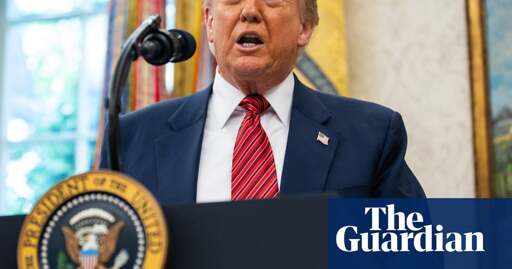- cross-posted to:
- worldnews@lemmy.ml
- cross-posted to:
- worldnews@lemmy.ml
Donald Trump will inevitably claim Monday’s temporary truce in the US-China trade war as a victory, but financial markets seem to have read it for what it is – a capitulation.
Stocks were up and bond yields were higher after the US treasury secretary Scott Bessent’s early morning press conference in Geneva, where he has been holding talks with China.
As with the UK “trade deal” last week, the US is not reverting to the status quo before Trump arrived in the White House.
Instead, tariffs on Chinese goods will be cut from 145% to 30% – initially for a 90-day period. In return, China has cut its own tariffs on US imports to 10%, from the 125% it had imposed in retaliation against the White House.
That still marks a big shift in the terms of trade between the two countries since before Trump came to power, but falls far short of what was in effect a trade embargo.
Instead, the statement hailed “the importance of a sustainable, long-term and mutually beneficial economic and trade relationship”. The language was rather different to Trump’s Liberation Day speech, about the US being “looted, pillaged, raped and plundered by nations near and far”.
In other words, the president has caved. He may have been swayed by market wobbles but it seems more plausible that dire warnings from retailers about empty shelves – backed up by data showing shipments into US ports collapsing – may have strengthened the hands of trade moderates in the administration.



Trump is so stupid, he has basically made it a necessity to abandon MS office in public services in EU. And of course also American cloud services.
So these will definitely lose sales in EU even without tariffs, because USA is no longer a trusted partner.
Programs are also started with the purpose to make it easier to switch away from these American services. Which can help private organisations too.